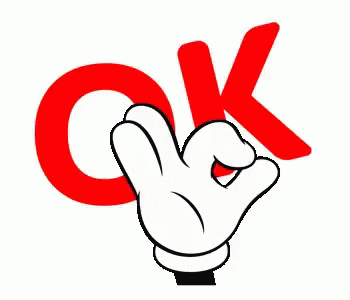The origin of the word "OK"
The word OK happens to be one of the most used words in the English language. We all use it and even though we know what it means, we generally have no idea where the expression comes from or what it actually stands for.
In fact it's not an old word.....only around 150 years!
It traces back to Boston in the 19th Century, where an editorial joke went 'viral' and when that happens, all sorts of things get adopted.
Just think of how LOL, LMAO and OMG have all become 'words' in their own right. When people adopt these slang phrases or words, they can quickly become adopted into the culture or language of the day.
What does OK (also spelled as okay or O.K.) mean?
It's a word that generally denotes approval, acknowledgment or agreement and is used in other languages as well as a 'loanword'. "OK, I will see it gets done". Or as an affirmative answer a simple OK will be enough.
Wikipedia gives a good breakdown on some of the uses of the word:
"As an adjective, OK principally means "adequate" or "acceptable" as a contrast to "bad" ("The boss approved this, so it is OK to send out"); it can also mean "mediocre" when used in contrast with "good" ("The french fries were great, but the burger was just OK").
It fulfills a similar role as an adverb ("Wow, you did OK for your first time skiing!").
As an interjection, it can denote compliance ("OK, I will do that"), or agreement ("OK, that is fine").
It can mean "assent" when it is used as a noun ("the boss gave her the OK to the purchase") or, more colloquially, as a verb ("the boss OKed the purchase").
OK, as an adjective, can express acknowledgement without approval. As a versatile discourse marker or back-channeling item, it can also be used with appropriate voice tone to show doubt or to seek confirmation ("OK?", "Is that OK?")."
Origins
There are a few possibilities of how this came to be the most used word in the English language, however there are 2 that stand out as the most probable of the lot.
The 1st is mentioned above where it was general practice to play or joke with abbreviations such as miss spelled terms "all wright" (all right) abbreviated as OW.
The one that did stick however was the term used by Charles Gordon Greene in the Boston Morning Post editorial joke. The term was "Oll Korrect" and abbreviated to OK!!
The article was a satirical article about grammar, which in my opinion is one of the best ways to get across a point, and the word OK seemed to really stick with people of the day.
Then shortly after this there was another use of the term for the abbreviation for the nickname of the then Democratic party president Martin Van Buren, also called "Old Kinderhook" because of him coming from Kinderhok NY.
He was abbreviated to OK (Vote for OK) and this with the OK from the editorial seems to have stuck with us all.
It in essence went viral and became a word used till today.
There are a few other possibilities, but this seems to cover the main possibilities of where the word came from.
Hopefully this information has been OK? If it was please show your agreement with an OK vote :)
Keep well all!



Hi and thanks for the post! It's another one of those questions that turns out to be interesting, even though I had never thought to ask it.
I have included a link to your post in my recent article, Science and technology micro-summaries for July 3, 2019, and set a beneficiary so that you'll receive 5% of the rewards when it closes.
Hey there, thanks for the mention in your post and the (hopefully) huge rewards.
Keep well
Your post has been very okay and very interesting to read. I use okay a lot!
LOL I think most people use the word. Its interesting to see where it came from though
Nice and interesting post, today I have learnt something new.
Thank you. Almost every time I look into something to wrote about I learn something new. Its what is great about being part of the platform